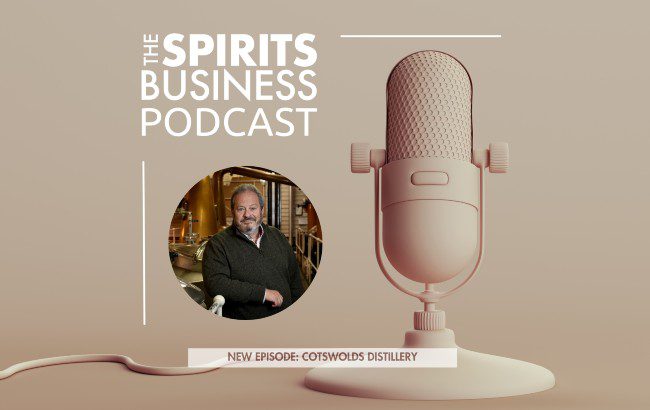Cotswolds Distillery: scaling a business and spearheading English whisky
By Melita KielyDan Szor swapped a career in finance and Wall Street to make whisky in one of the most idyllic parts of England. He tells us how he did it, with insights into how he raised capital for the Cotswolds Distillery, and why a GI for English whisky could do wonders for the category.

The Cotswolds Distillery was one of the first English whisky producers on the scene and has been at the forefront of the category’s recent growth.
It has been more than a decade since Szor brought his distillery dream to life by establishing the Cotswolds Distillery in 2014.
He found an abandoned site near his home in the Cotswolds, which he transformed into the distillery.
In the latest episode of The Spirits Business Podcast, Szor discusses his journey from finance into whisky – a fortuitous move that came about following a whisky tasting at La Maison du Whisky in Paris.
Today, the Cotswolds Distillery creates a broad range of products, including an award-winning gins, liqueurs, a Summer Cup, and the Cotswolds Dry Gin Essence, designed to offer the full flavour of gin, but at a fraction of the ABV once mixed.
A key talking point in the podcast episode with Szor is the recent application for a geographical indication (GI) for English whisky.
“It was actually one of our [English Whisky Guild] members who was approached by Defra [the Department for Environment, Food and Rural Affairs in the UK], saying that in a post-Brexit UK, there was an interest in growing the number of homegrown GIs,” Szor explained. “And the Welsh, as we now know, have their own GI for Welsh whiskey. Northern Ireland uses the Irish GI for whiskey. So why not an English GI? A GI does give people a sense of place and maybe a set of rules, which make people feel good about what we’re doing.”
The EWG’s application for a GI for English whisky entered the consultation stage after four years in development in February this year. It is now undergoing a three-month public consultation period, which will end on 19 May 2025.
Trade body the Scotch Whisky Association, however, has spoken out against the part of the proposed GI, arguing it could be detrimental to the reputation of single malts. That’s because for English whisky, the proposal omits the mashing and fermentation parts of production – which, as the proposal stands, could take place at a different location. However, to be labelled single malt Scotch, all processes must occur at a single site.
“I knew of certain distilleries, who, when they were starting out, didn’t make their own beer on site but worked with breweries that were local to them,” Szor explains. “Even though we don’t do it that way – here in the Cotswolds, we make our own beer – I saw no issue with it, particularly given some of our members, for example, the Spirit of Yorkshire Distillery who makes Filey Bay Whisky… they decided to become distillers and their brewery is maybe a mile or two away from their distillery.
“Is what they make not a single malt whisky? I mean, to me, that just seems ludicrous.
“So, I think we specifically decided not to talk about having to have the beer made right next to where the beer was distilled to allow for perhaps smaller distilleries, who maybe didn’t have the wherewithal to buy lots of brewing equipment, but had a brewer nearby. Or maybe even people who want to do something creatively.”
Szor goes into further detail about why the GI has been created to support newer English whisky distilleries and to promote and permit creativity among the category.
Episode 17 of The Spirits Business Podcast with Szor is now available to listen to on all major streaming platforms, including Apple Podcasts, Spotify and Amazon Prime.
Alternatively, click the link below to listen to the latest episode.
Past guests have included Sam Simmons, head of whisky at Atom Brands, Becky Paskin, founder of the OurWhisky Foundation, Lorraine Copes, CEO and founder of Be Inclusive Hospitality, Fawn Weaver, CEO and founder of Uncle Nearest, and Lasse Öznek, master distiller of Copenhagen Distillery.
Related news
SB Podcast: Olivier Ward on what the UK Distilling Census reveals
